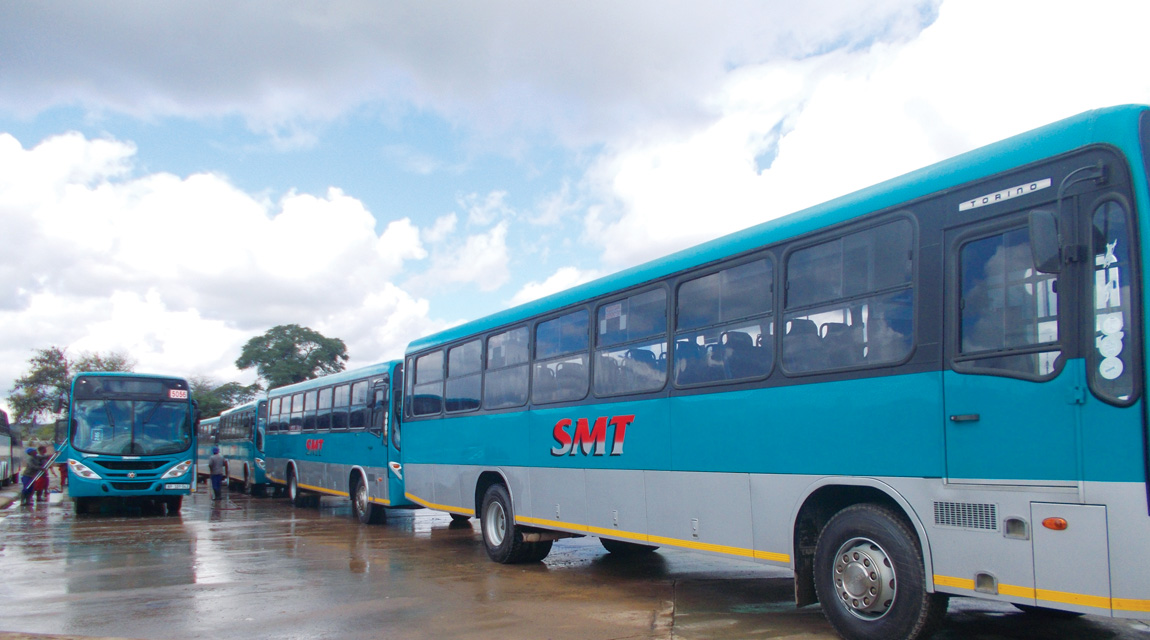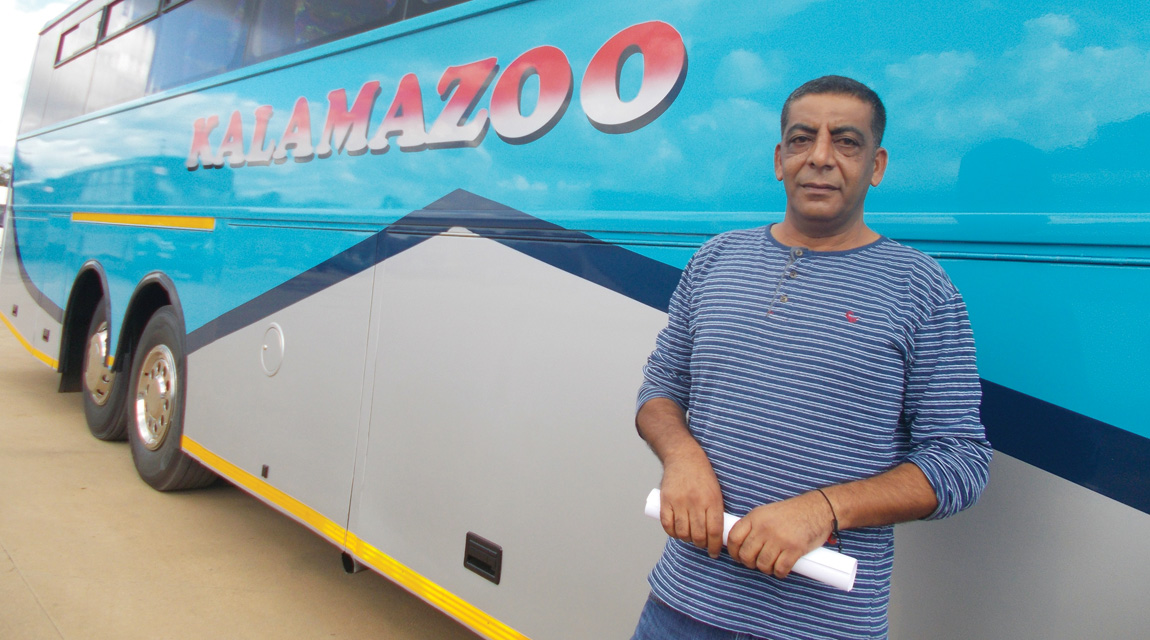Kalamazoo – Pride of Pietermaritzburg

Kalamazoo might be a mere dot on the map of the United States (in Michigan, to be precise), but, in KwaZulu-Natal, it’s actually quite a big deal, as PETA LEE discovers.
Kalamazoo is a well-established and hugely successful coach line in Pietermaritzburg, offering around 150 buses for hire (including coaches and semi-luxury liners) for all functions and requirements throughout South Africa.
Kalamazoo has been around for more than half a century and is the parent company of Sizanani Mazulu Transport (SMT), Impendhle Services, Eagle Liner and Intercity Express.
Depot manager, Ashraf Hassim, explains: “They all fall under the company Classy Trade & Invest. Faizel Bhayla is the director of the entire group, but each company is run as its own entity.”
The business, which now comprises a fleet of 350 luxury and semi-luxury buses, runs its operation from its head office and depot in Willowton, with additional depots in Merrivale, Howick, and Lenasia, in Johannesburg.
Hassim notes that SMT was acquired from KZT Transport, a then insolvent municipal government-subsidised operation. “It was in a bad state. The buses were run down and there were staffing issues. The entire business had to be rebuilt from scratch,” he explains.
SMT now boasts some 80 buses and runs as an efficient commuter service throughout Pietermaritzburg.
The 36 Taros buses (under the Impendhle umbrella) serve commuters throughout Howick, the sprawling Mpophomeni township and outlying rural areas.
“While a large part of our business is daily commuting, we also cater for long-distance travellers, with 100 buses in our Eagle Liner and Intercity fleets, which service city-to-city and cross-border passengers,” says Hassim.

To remain as a frontrunner in this complex industry, players need to stay on top of their game. “Customer safety is a non-negotiable priority for us. Every two or three years we replace our buses. Many of our buses are only a year old,” says Hassim.
“However, new buses alone don’t make a better service. Initiating efficient systems is equally important. These must be practical, effective and make a positive contribution to the company,” he explains.
“It’s how the company is structured and managed that makes the difference to the performance of the business,” he adds.
“Fundamentally, our aim is to provide a safe, reliable and efficient transport service to the public and private sectors. Our philosophy is to establish a culture of the highest ethical and moral values through total commitment of management and staff,” says Hassim.
“Without a supportive staff, no business can possibly work to the best of its ability. We all share the same vision and have the same goals,” he explains.
“Management also continually monitors and ensures all contract work is prioritised so that buses reach their destinations on time,” he adds.
Backup buses are always ready in case of major breakdowns – and there’s a state-of-the-art workshop on site, which is manned by efficient artisans and mechanics, who service the vehicles regularly.
“Gone are the days when you could climb into the engine and fix a bus. Technology has evolved tremendously,” explains Hassim.
“Our drivers have a defect reporting list, so any fault, no matter how small, is reported and attended to, as well as monitored daily,” he notes.
The buses all have regular safety checks by mileage and hours of use for preventive maintenance, and all have authentic public permits and roadworthy certificates.
Apart from its mechanical workshop, the company also has an in-house tyre shop – with substantial stock.
Hassim notes: “We work closely with tyre technicians and constantly evaluate our tyres.” The company’s tyre team is trained by Bridgestone, whose staff regularly inspect the fleets’ tyres and provide advice.

The activity of all vehicles can be tracked and monitored by either Pointer or Ctrack, which are available to contracted customers, so their exact location, speeds, deviations and behaviour of drivers can be monitored.
“We are fitting our buses with cameras, and have the latest technology for monitoring our drivers. This ultimately saves lives and reduces liability. It will also enable us to identify areas where our drivers might need better skills, and to provide coaching and retraining where necessary. We take road safety extremely seriously,” says Hassim.
A permanently employed driver trainer ensures employees are capable of driving district vehicles and buses in a safe and professional manner.
“He delivers tailored programmes and refresher courses based on the vehicle make and model, the terrain, hazards and danger zones on specific routes, and according to reports from our tracking and visual material from the on-board cameras,” Hassim adds. Occasionally driver training is supported by Scania driver trainers.
The company places major emphasis on preventative safety measures – so the health of drivers, their working conditions and hours are closely monitored. “They don’t work very long hours and we always have two drivers per long trip, so if one is tired or unwell, they change over immediately,” explains Hassim.
With South Africa’s public transport network being what it is, privately owned bus services, particularly from city to city, play a huge role.
“It is a critical sector, which is also highly competitive, and it’s important to have a projection and plan for the future,” observes Hassim.
“We are already one of the province’s largest bus companies, and we have an excellent safety record. I think what sets us apart from the competition is that we have a love for the passenger industry. It’s extremely rewarding. There’s nothing better than a satisfied client at the end of the day,” concludes Hassim.
Published by
Focus on Transport
focusmagsa




